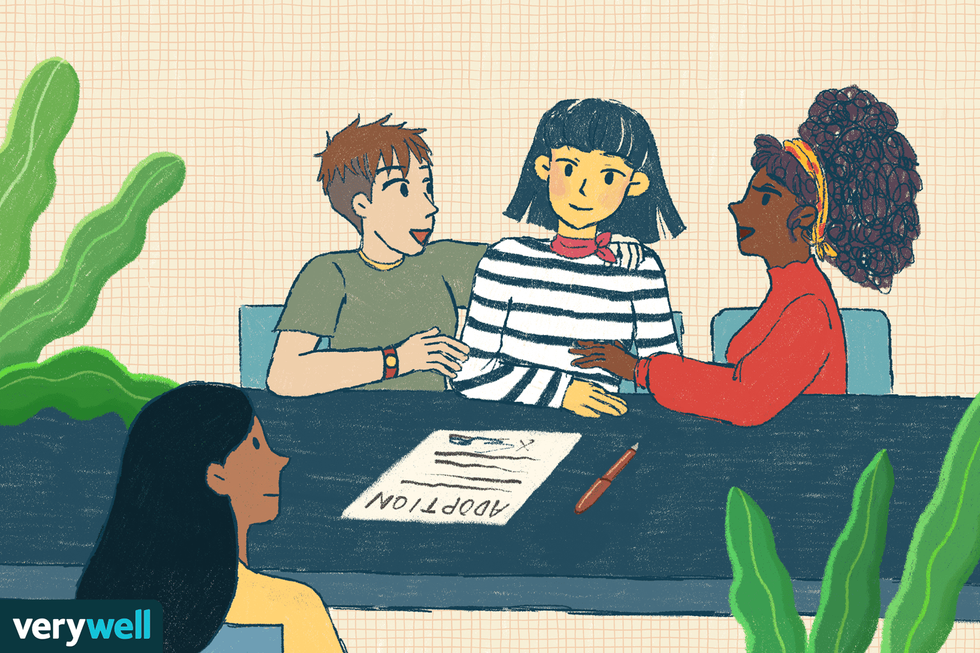Nearly 6 million US citizens have been adopted, and many of these adoptions have been closed adoptions. If you're from one of these closed adoptions, you've almost certainly considered finding your birth parents.
Adult adoptees have a handful of common reasons for wanting to find birth parents. Some people want to learn more about their genome from a medical perspective, with an eye for potential medical predispositions. Others want to learn more about their family history. Still others are genuinely curious in their biological parents' appearance, demeanor, and abilities. And finally, many adoptees want to find closure, resolution, or answers to nagging questions ("why did my mother place me for adoption?" "does my mom want me to find her?").
Thanks to the Internet, we now have access to a wealth of knowledge. Databases such as the International Soundex Reunion Registry (ISRR) contain a large number of people looking for biological relatives. There are "mutual consent" registries to connect people with biological family members who are looking for them. Social media support groups have cropped up to help adult adoptees cope with the struggle.
Speaking of social media, adoptees, can use Facebook's search box to enter the information they know, such as their birth name and the state or region where they were born. They can select different profiles and send private messages to potential birth by clicking on them. Facebook can also be used to share information by posting your story and inviting others to do the same - it's extremely probable that someone on Facebook knows your birth parents or birth parents' birth parents.
Finally, adoptees can employ the services of a private detective, a genetic genealogy firm, or a confidential mediator.
What Can You Expect From Adoptee Search and Reunion?
As previously said, there are a variety of reasons why adoptees look for their biological parents. Birth parents, in turn, frequently search for the child they gave up for adoption.
Adoptees may also be searching for biological siblings or half-siblings.
Every circumstance is unique, and adoptee search and reunion can be a difficult and stressful experience. It is a personal choice, and while the quest may end happily, there are other instances where the search ends in disappointment or with no resolution.
Usually, adult adoptees undertake the search in the hope that they'll find resolution and connection. Often, they do. Unfortunately, they sometimes don't. Occasionally, the search ends in pain and drama.
It's critical to have a strong support system in place, and if at all possible, learn from others who have already reconciled with birth parents or family members.
Here are some actions you can take if you are an adoptee who is interested in learning more about your biological family:
1. Inquire of your adoptive parents, extended family, friends of your parents, and anybody else who was there at the time of your adoption. Inquire about what they recall or what they were told.
2. Try to track down the adoption expert or state agency who assisted you with your adoption and see if they have any information you may use.
3. Find out if your birth mom was sent to live with an out-of-state family or acquaintance or if she lived in a home for unwed mothers. Inquire about all they remember before, during, and after birth.
4. Find out who the original pediatrician was (as well as any nurses who worked in the practice) and arrange a meeting with them or locate their records.
5. Go to the hospital and visit with someone from social services or an ombudsman if you know where you were born.
6. Cooperate with anyone who will meet with you or assist you in your information-gathering efforts. This entails completing forms and, on sometimes, accepting or finishing counseling. Check to see if you're looking for the "correct" reasons.
7. Check your state's laws. You may be able to obtain your original birth certificate if you were reared in one state but your adoption was finalized in another.
What Are the Laws Regarding Adoption Records Access?
Once an adoption is finalized in the United States, there are rules shielding adoption records from the public. Individual States, on the other hand, have developed protocols for disclosing information on adoptions while still protecting all parties involved. Non-identifying information on the adoptee, adoptive parents, and birth parents can be released by states and agencies.
Identifying Information is information from an adoption record that can be used to positively identify the birth parents or other birth relatives in most cases. Names, addresses, job records, and other comparable documents or information may be included. Nearly all states have laws that allow the release of identifying information if the person whose information is being requested has granted their agreement.
Many states have a Mutual Consent registry. It's a means for those who are directly involved in adoptions to designate whether or not they want their personal information given to the other party (birth parents to adult adoptees and vice versa).
Each State has its own rules about how sealed adoption records (identifying information) are released. Texas, for example, won't release identifying information about your closed adoption unless your biological parents have given their written consent. In contrast, New York will release your records so long as your birth parents haven't explicitly filed a request against such a release.
When an adoption is finalized, the adoptive parents are usually given a new birth certificate for the adopted kid. The State Registrar then seals the original birth certificate and keeps it confidential. Obtaining access to an adoptee's original birth certificate used to require a court order in nearly every state. However, some states have made it easier for adult adoptees to access their original birth certificate.
The Ongoing Debate About Adoption Records
There is a lot of ongoing controversy about sealed adoption records, who should be allowed access to them, and when.
Sealed adoption records were intended to shield birth parents, children, and adoptive parents from the stigma and humiliation that came with unintended pregnancies and adoption. Adoptive parents were told not to tell the child they had been adopted because placements were done in secrecy. Misinformation was known to be included in birth records and certificates in order to protect both the birth and adoptive parents, as well as the adopted kid.
Society has evolved through time, and adoption no longer bears the stigma and humiliation that it did nearly a century ago. However, policies toward adoption records have not been updated to reflect changing mores.
Adoptees may still be denied access to their birth history, medical information, and original birth certificate, depending on their state's laws, and their adoptive parents may not be able to obtain medical, psychological, or family history to answer their questions or aid in their adjustment or medical treatment.
The "right to know" argument for Open Records is that adoptees should have the same access to birth information as non-adopted adults. The argument for closed records continues to be that it protects birth parents' right to privacy.
Open Records with Restrictions is a middle ground solution. Some information could only be shared through a third party, with parental authorization, and in a limited scope and time frame.
Legislators and adoption advocacy groups debate the advantages and disadvantages of open versus closed adoptions because each state has its own legislation governing adoption data. The "right to know" continues to be a source of contention for adoptees, birth parents, and adoptive parents. Many adoptees, birth parents, and adoptive parents will have to rely on search organizations, professional searches, and registries to collect information about their adoption process until all states disclose adoption records without restrictions.



 Photo by
Photo by  Photo by
Photo by  Photo by
Photo by  Photo by
Photo by 


 people sitting on chair in front of computer
people sitting on chair in front of computer



 all stars lol GIF by Lifetime
all stars lol GIF by Lifetime two women talking while looking at laptop computerPhoto by
two women talking while looking at laptop computerPhoto by  shallow focus photography of two boys doing wacky facesPhoto by
shallow focus photography of two boys doing wacky facesPhoto by  happy birthday balloons with happy birthday textPhoto by
happy birthday balloons with happy birthday textPhoto by  itty-bitty living space." | The Genie shows Aladdin how… | Flickr
itty-bitty living space." | The Genie shows Aladdin how… | Flickr shallow focus photography of dog and catPhoto by
shallow focus photography of dog and catPhoto by  yellow Volkswagen van on roadPhoto by
yellow Volkswagen van on roadPhoto by  orange i have a crush on you neon light signagePhoto by
orange i have a crush on you neon light signagePhoto by  5 Tattoos Artist That Will Make You Want A Tattoo
5 Tattoos Artist That Will Make You Want A Tattoo woman biting pencil while sitting on chair in front of computer during daytimePhoto by
woman biting pencil while sitting on chair in front of computer during daytimePhoto by  a scrabbled wooden block spelling the word prizePhoto by
a scrabbled wooden block spelling the word prizePhoto by 
 StableDiffusion
StableDiffusion
 StableDiffusion
StableDiffusion
 StableDiffusion
StableDiffusion

 women sitting on rock near body of waterPhoto by
women sitting on rock near body of waterPhoto by 








